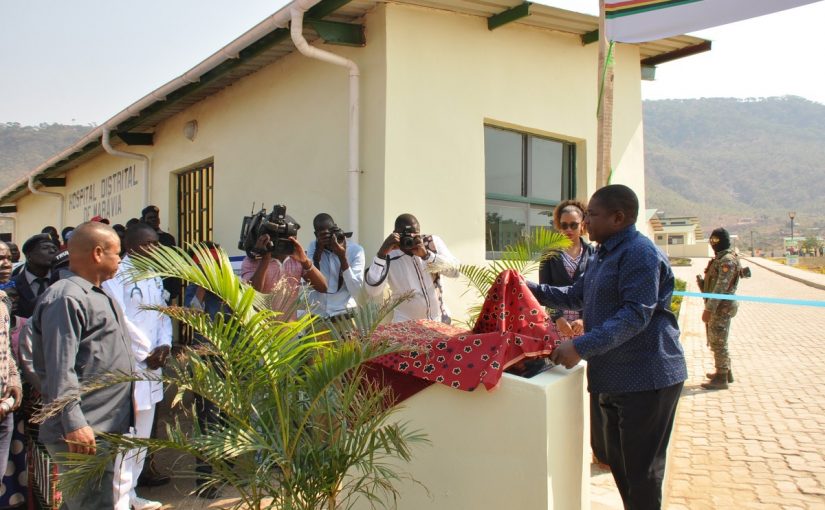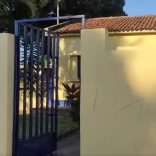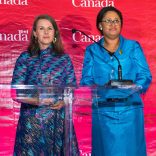Mozambique: Demobilised close Renamo Matola office, Momade re-opens it -Watch
China to import Mozambican tobacco, says Nyusi in Angónia – AIM report

In Domue, Angónia, Nyusi inaugurated two stretches of road, the Mphulo-Tsangano-Ulongue road, and the Ulongue-Domue-Furancungo road. [Picture: Presidencia da Republica de Moçambique]
China will import 60,000 tonnes of Mozambican tobacco a year, as from 2020, making it the second largest importer of this cash crop, according to President Filipe Nyusi.
Nyusi announced the planned Chinese purchases at a meeting on Thursday with the public in Domue, in Angonia district, as part of his working visit to the western province of Tete.
Up until now, the United States has been the sole market for Mozambican tobacco, particularly the tobacco produced in Tete.
Nyusi also revealed that, as from 2020, China will import 15,000 tonnes of macadamia nuts a year from Mozambique, 30,000 tonnes of cashew nuts, 150,000 tonnes of sesame, and 200,000 tonnes of pigeon peas. Previously India was the sole export market for Mozambican pigeon peas.
The President said that the increase in exports results from the appeals he has made in contacts with international partners, urging them to exploit what the Mozambican market has to offer.
Nyusi urged Mozambicans to continue responding to the government’s appeals for increased production and productivity, stressing that the government’s road building programme was intended to provide routes for the movement of goods produced in the countryside.
In Domue, Nyusi inaugurated two stretches of road, the Mphulo-Tsangano-Ulongue road, and the Ulongue-Domue-Furancungo road. Together they are 204 kilometres long. They cross the fertile districts of Angonia, Tsangano and Maravia, which have high agricultural and livestock potential.
“We built the road thinking about production”, he said. “The road will have work. It will carry merchandise. It will make money”.
The two roads were financed by the World Bank, and cost slightly more than a billion meticais (about 16.7 million dollars). Work on them began in October 2017, and was completed in July this year.
“Here the conditions have been established to transport agricultural inputs to the fields, and to take the crops produced by farmers to the marketing centres”, said Nyusi. The roads were vital for developing the economy of Tete province, facilitating the movement of people and goods, and reducing dependence on neighbouring Malawi.
Nyusi also inaugurated a hospital in Fingoe, the capital of Maravia district, with the capacity for 70 beds, and with five doctors. The hospital will serve the districts of Maravia, Chifunde and Zumbo. The health authorities hope that, with the new hospital, fewer residents of Tete will feel obliged to seek health care in neighbouring countries such as Malawi and Zambia.












Leave a Reply
Be the First to Comment!
You must be logged in to post a comment.
You must be logged in to post a comment.